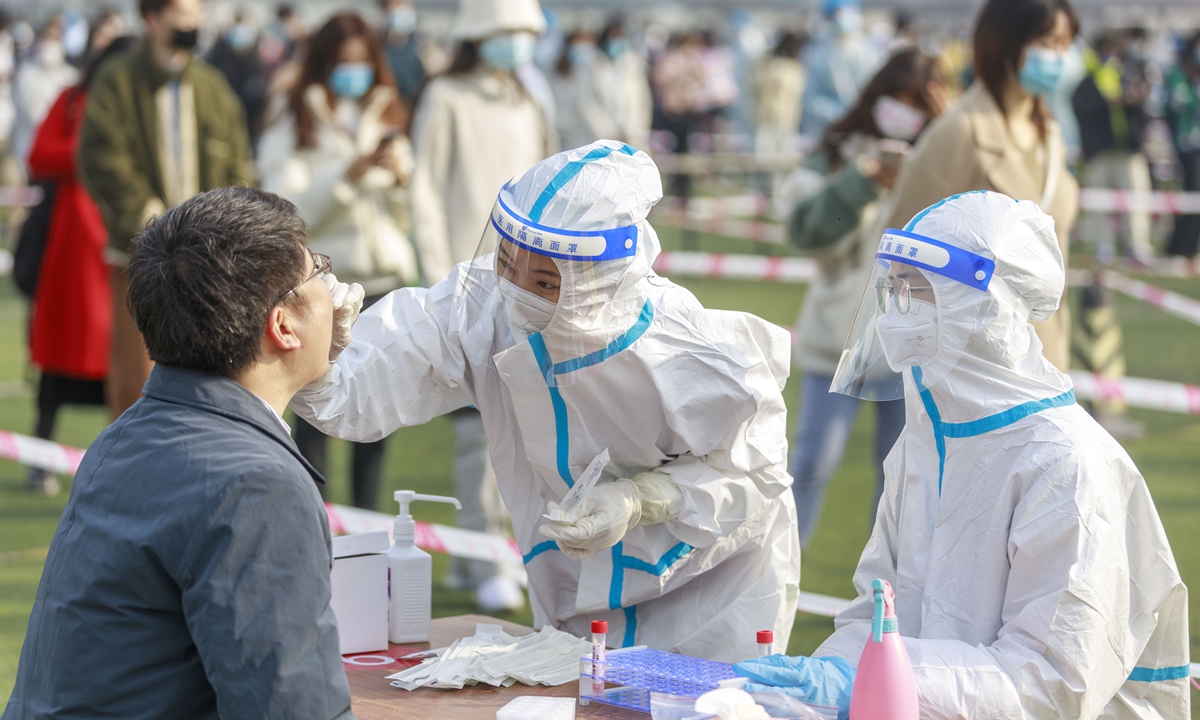
Residents in North China's Tianjin Municipality undergo nucleic acid testing in March 2022. Photo: VCG
China's top health expert reiterated on Wednesday the need for China to stick to the dynamic-zero COVID strategy. If left uncontrolled, he warned, the epidemic would cause more infections, more deaths, squeezing the country's medical system and resulting in more serious illness due to the lack of medical resources.
Liang Wannian, head of China's COVID response expert panel under the National Health Commission, gave the remarks during an interview with China Central Television on Wednesday.
He said that China still faces mounting pressure from imported cases and should stick to the general principle of fighting the epidemic, as the Omicron variant has faster transmission.
Explaining the dynamic-zero COVID approach, Liang said that three aspects should be taken into consideration: virulence and pathogenicity of the virus, resistance of China's health system, and social interventions.
"A balance among these three factors is needed for us to make anti-epidemic measures. Currently, our health system cannot fully resist the viral pathogenicity, so social interventions are needed to balance them," Liang said.
If left uncontrolled, there may be many infections, serious illnesses and deaths, resulting in a squeeze on the healthcare system, causing more deaths due to a lack of medical resources. It will then increase people's fears and have a big impact on society and the economy, the expert noted.
Thanks to the effective COVID containment measures, China's infection rate and mortality rate are among the lowest in the world. But if China does not strictly adhere to the anti-epidemic measures, the damage could be considerable.
Answering a question about whether it is still necessary to wear masks, given the mild symptoms of Omicron, Liang said that although the case fatality rate is lower, the overall mortality rate is still high, and it is still a major public health problem. Therefore, prevention and control measures are still necessary when vaccines and drugs do not meet the ideal standard.
As to whether it is "worth" sacrificing some economic gains in order to achieve the dynamic-zero policy, the expert said that we should not see a single side but judge the overall situation comprehensively, taking into account society, people's livelihoods and long-term gains. And if we see the whole picture, China's approach is the most cost-efficient way.
When asked if people could expect the dynamic-zero COVID strategy to be "over" by spring next year, Liang said no definite timetable can be given.
"There is still a great deal of uncertainty about the virus, especially the mutation of the virus, and the sequelae of the infection are still under study. There is no 'brake' to apply if we let go," Liang noted, calling on society to remain calm and confident.




